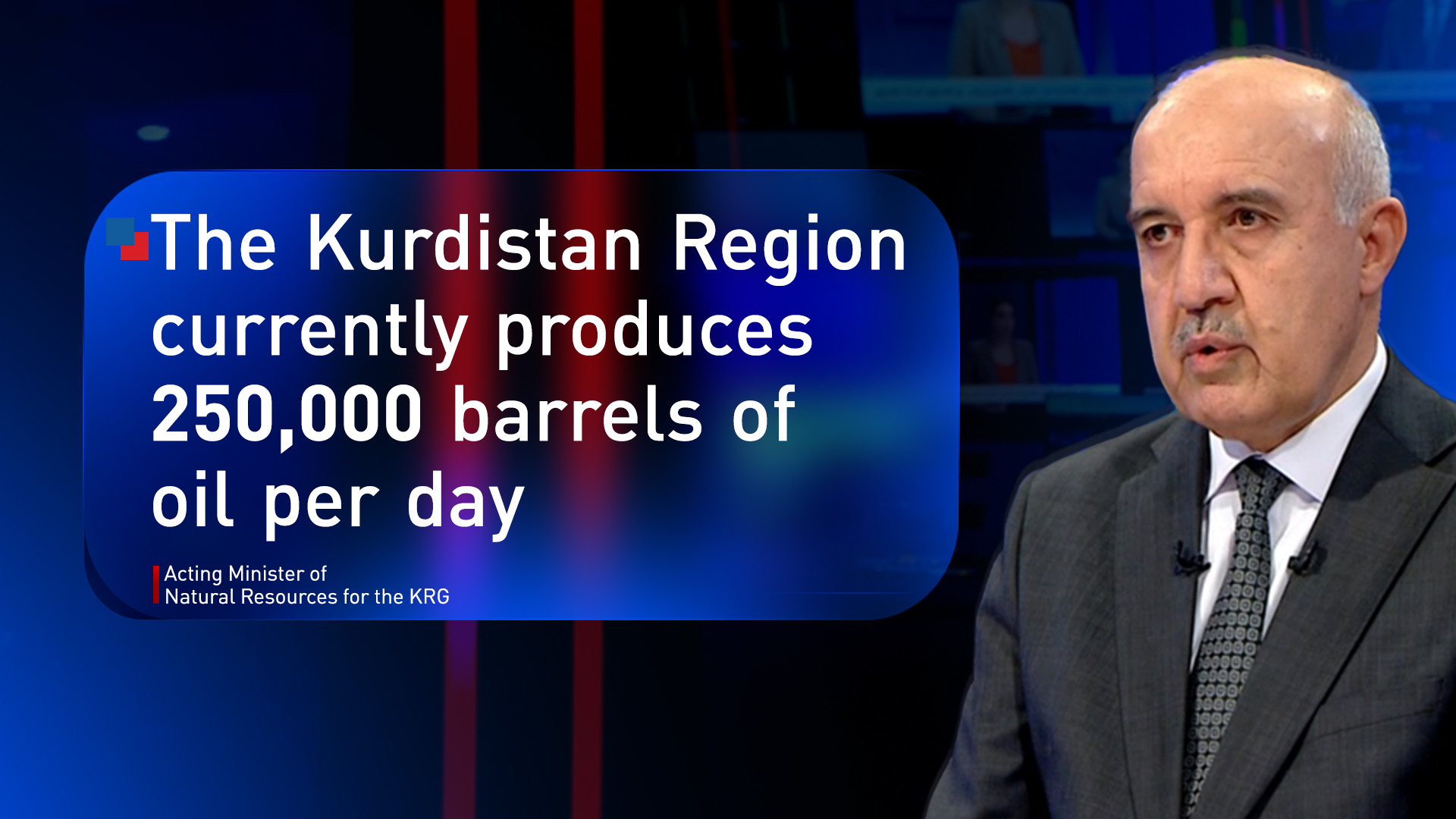KRG Exports Over 2.1 Million Barrels of Oil to Ceyhan Port, Acting Minister Confirms
“The Kurdistan Region currently produces 250,000 barrels of oil per day, of which 50,000 barrels are allocated for domestic consumption,” Minister Mohammed told Kurdistan24.

ERBIL (Kurdistan 24) – Kamal Mohammed, Acting Minister of Natural Resources for the Kurdistan Regional Government (KRG), announced on Wednesday that over 2.1 million barrels of oil have been exported from the Kurdistan Region to Turkey’s Ceyhan port so far, with an average of 190,000 barrels delivered daily to Iraq’s State Organization for Marketing of Oil (SOMO) over the past 11 days.
“The Kurdistan Region currently produces 250,000 barrels of oil per day, of which 50,000 barrels are allocated for domestic consumption,” Minister Mohammed told Kurdistan24. He explained that this portion is used for generating electricity, producing gasoline, and a small amount of kerosene, emphasizing that these supplies are essential to sustaining all sectors in the Region.
The minister further noted that the Iraqi government has pledged to provide an additional 15,000 barrels of oil daily if the current supply falls short of domestic needs.
Mohammed confirmed that on Oct. 3, SOMO reported storage congestion at Ceyhan port, prompting a 10-hour suspension of oil exports. A similar reduction in exports occurred on Oct. 6 due to full warehouses once again. He clarified that such overflow incidents are normal and that the KRG has coordinated with the Iraqi Oil Ministry to establish a more efficient export schedule.
He reaffirmed that the management, data, and transportation of oil from the Kurdistan Region to Ceyhan remain under KRG authority, while SOMO’s role is limited to marketing the oil. “Sixty-five percent of the salaries paid by the Iraqi government to the Kurdistan Region come from oil revenues,” he said, explaining that part of the proceeds from SOMO sales goes to Baghdad, while revenues from other companies are placed in a special account to be distributed at the end of each month with KRG approval.
Regarding financial disputes with Baghdad, Mohammed said the Iraqi government had cited three reasons for withholding public sector salaries in the Kurdistan Region—oil revenues, non-oil revenues, and financial management — noting that the KRG’s recent actions represent “a positive step toward resolving the issue.”
He also announced that distribution of kerosene to citizens will begin within the next 10 days.
The acting minister highlighted that oil exports had been suspended for 30 months due to a legal dispute initiated by the Iraqi government, causing significant losses to all parties involved. “The current export agreement will remain in effect until Dec. 31, but exports will continue beyond that date until a new deal is reached,” he stated.
Mohammed concluded by noting that if Kirkuk oil is exported through the KRG pipeline, Turkey will receive $1.29 per barrel from the Iraqi Oil Ministry.
On Sept. 25, Iraqi Prime Minister Mohammed Shia’ al-Sudani announced a tripartite agreement involving the Kurdistan Region, international oil companies, and Iraq’s Federal Ministry of Oil. This agreement will enable the resumption of crude oil exports from the Kurdistan Region through the Iraq–Turkey pipeline.
On the same day, in a statement on social media platform X, Kurdistan Region Prime Minister Masrour Barzani said the tripartite agreement is the “result of tireless efforts and months of negotiation by teams on all sides.”
The agreement follows months of complex negotiations after oil exports from the Kurdistan Region were halted in March 2023, when a Paris-based International Chamber of Arbitration ruling required Baghdad’s approval for shipments through the Ceyhan pipeline. The stoppage cut off a vital revenue source for both governments, exacerbating fiscal pressures and limiting Iraq’s influence on global energy markets.